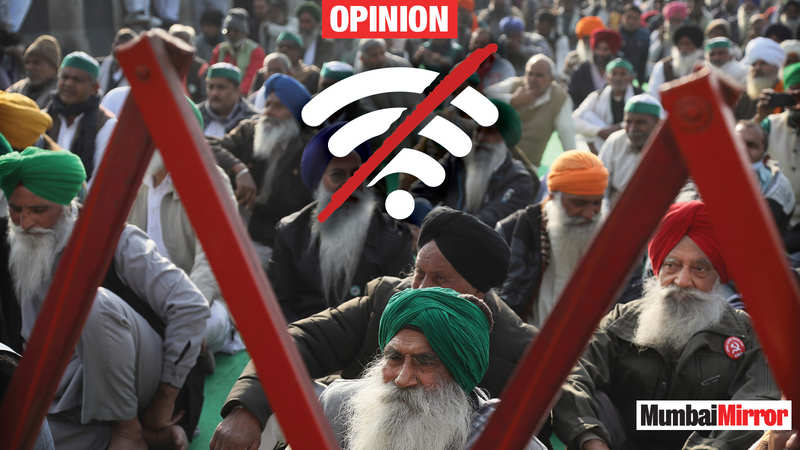Why ordering internet shutdown is outrageous

- Raman Jit Singh Chima
- Updated: Apr 3, 2022, 20:13 IST IST
In this era of digital democracy, the government owes us a clear, explicit commitment that Indians will not be disconnected
As residents in Delhi and Haryana have begun to again access regular telecom services after the shutdowns ordered alongside the Republic Day protests, we need to recognise a large problem before us. Internet shutdowns – the intentional disruption or switching off regular internet services on the direction of government agencies – have become an endemic pan-India concern. The national capital region itself has now seen two major internet shutdowns in the last 13 months – with shutdowns ordered during the peaceful anti-CAA/NRC protests in December 2019 and the recent suspension of internet and text messaging services in Delhi and Haryana during the Republic Day farmers protests rallies.
As the new year began in 2020, wide swathes of the country – several districts of Uttar Pradesh, Karnataka, and the whole of Assam – had seen internet shutdowns ordered to disrupt and repress protests. Jammu and Kashmir has seen one of the longest internet shutdowns in the world, with partial, unsatisfactory relief coming only after repeated Supreme Court hearings and concerns raised by national media. The states of Rajasthan and West Bengal have seen internet shutdowns ordered not only to suppress protests or alleged communal situations, but for trivial, unsatisfactory reasons such as preventing cheating in exams and job selection processes.
As the new year began in 2020, wide swathes of the country – several districts of Uttar Pradesh, Karnataka, and the whole of Assam – had seen internet shutdowns ordered to disrupt and repress protests. Jammu and Kashmir has seen one of the longest internet shutdowns in the world, with partial, unsatisfactory relief coming only after repeated Supreme Court hearings and concerns raised by national media. The states of Rajasthan and West Bengal have seen internet shutdowns ordered not only to suppress protests or alleged communal situations, but for trivial, unsatisfactory reasons such as preventing cheating in exams and job selection processes.
